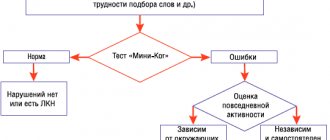With such a personality anomaly as dependent personality disorder, a person has a pronounced feeling of helplessness, incompetence, failure, powerlessness and ignorance, a pronounced subordination to those people who surround such a person when he makes various life decisions.
Also, a dependent person has a pronounced fear of loneliness. Such people consider themselves unable to exist without the constant care and support of others. These ideas about one’s capabilities accompany a person with dependent personality disorder almost always and cover all areas of his life. The behavior of people with dependent personality disorder is determined by their constitutional anomaly: they passively agree with the wishes of others and poorly respond to the challenges of everyday life. Decreased activity may extend to intellectual or emotional areas. In most cases, individuals with dependent personality disorder tend to shift responsibility to others.
Such people feel a constant need to be taken care of and make decisions, they quickly become attached to others, and are prone to submission.
General information
Asthenic psychopathy is an outdated name for dependent personality disorder, which is characterized by an increased sense of helplessness.
People with the asthenic type of psychopathy are prone to passive consent, constantly feel incompetent and unviable, especially if there is no support from loved ones and relatives, and they often need it like air. They are characterized by a desire to survive at the expense of others, as well as a persistent excessive need for care and fear of abandonment. The International Classification of Diseases, Tenth Revision (ICD-10) assigned the code F60.7 and the name “Dependent Personality Disorder.” It is defined as a psychological disorder, expressed in the form of fear of loneliness, deep passive consent and submission to everyone around, especially if you need to make decisions and determine life goals. Patients are characterized by low activity - intellectual and emotional, a tendency to shift responsibility to others, and a weak response to the demands and standards of everyday life. There are dependent personality disorder, in addition to asthenic - inadequate, passive and self-suppressive.
It was previously believed that dependent personality disorder affects approximately 2% of the population and is more common among women. Classic examples are the wives of tyrants and alcoholics, but in the modern world it has become clear that both sexes are equally susceptible to this disease.
Manipulation
Dependent people can easily manipulate others. They adapt to the world around them, notice even the smallest details and see their own benefit in everything. They are good psychologists (to their advantage) and see the weaknesses of other people, which they then cleverly exploit. Addicts play on pity, use flattery, and pretend to be incompetent and helpless.
The recipe for treating such people is very simple: you should not allow them to manipulate you even for the most insignificant reasons. Parents are advised to instill independence in their children and not allow excessive guardianship on their part.
Above we named some character traits of dependent people. The list of negative qualities of addicts is actually very long, so there is no point in listing them endlessly. You just have to understand that addiction is an insidious disease, which in its negative power is equal to death (and sometimes even worse), since it affects the person and everyone who is near him. You must try to never depend on anyone or anything, because freedom and independence are the strongest desires for any self-sufficient person.
Pathogenesis
To be somewhat dependent on family and friends is part of not only human existence, but also that of many other living beings. Every day we need to make decisions, trust and confide, take into account the opinions of not only friends, but also strangers, so it is logical that addiction has become an everyday aspect of social interaction, but when it goes beyond the bounds of reason, clinical psychology identifies such a condition as dependent mental disorder . Previously, it was considered as an inability to respond effectively when receiving emotional, social, intellectual and physical stimuli against the background of maladaptation, incompetence, indiscretion, social instability, most often in people with insufficient physical and emotional endurance.
The first signs of a mental disorder may appear at a young age. Such boys and girls are sensitive and impressionable, feel an excessive need for care from family and friends, and are prone to dependency and inefficiency. This stimulates their development of excessive submissiveness and a tendency to become attached due to the risk of losing material support, separation, or the fear of abandonment. The attachment pattern develops on the basis of anxiety and dependence, especially manifested in conditions of the threat of being abandoned and becoming indifferent to a significant, supportive and closest person, for example, a parent, spouse, friend, etc.
In addition to dependence on others, rejection of a submissive person leads to a loss of trust and a decrease in self-esteem, which exacerbates the feeling of helplessness and inability to autonomy, stimulates the development of phobias and panic attacks . The main solution to problems is to find a loved one who will take care and take responsibility for all decisions, but this only worsens the situation, since the patient does not receive the skills and experience for independence and is even more afraid of losing an important person.
Treatment
Psychotherapy is used for treatment purposes. Drug treatment is used to correct complications.
Psychotherapy is aimed at correcting self-esteem, restoring self-confidence, restoring self-worth, and developing decision-making skills. During therapy, it is important to ensure that the client does not become dependent, therefore sessions should be held rarely, and if necessary, take long breaks. A mandatory element of therapy is support, which further increases the risk of a dependent relationship with the doctor. The best option is group psychotherapy.
Group classes allow participants with the same problems to support each other. They find themselves on equal terms, which also has a beneficial effect on the treatment process; participants learn to take responsibility, interact in relationships, and not obey.
Behavior correction has a positive effect on:
- assertive techniques (polite refusals, asserting independence);
- honing social skills in a group;
- playing out situations and learning to solve problems;
- goal setting training;
- development of self-confidence and self-efficacy.
To correct the behavior of an asthenic person, it is necessary to form in him an adequate perception of himself, self-love, and teach him to perceive loneliness as solitude. You need to change the attitude “to be happy, I need people” to realizing yourself as an integral and independent person who does not need additions.
Codependent relationships, in which asthenics usually find themselves, are a stumbling block for successful therapy. Separation from a dominant partner is the most painful part of rehabilitation. If there is a need to interrupt therapy sessions (the doctor is immersed in the role of a rescuer), then regression of the asthenic’s behavior is more often observed.
Causes
Psychological factors contribute to the development of dependent personality disorder - childhood trauma, genetic predisposition to anxiety disorders , upbringing errors and an environment that provides all material benefits and all-encompassing care. This applies to a greater extent to persons who have reached the age of majority and remain to live with their parents. The main causes of psychopathy are considered to be:
- excessive indulgence;
- development of phobias, for example, being abandoned, losing a job, etc.;
- psychological deprivation in childhood up to about one year of age (lack of opportunity to meet vital needs);
- strong narcissistic partner.
Symptoms of Dependent Personality Disorder
Symptoms of asthenic psychopathy are primarily associated with a dependent position, the desire to shift responsibility to others, the fear of abandonment and a tendency to submit. They are expressed in the form of reactions such as:
- increased anxiety ;
- frequent panic attacks;
- diffidence;
- passivity and suggestibility;
- modesty and uncertainty;
- excessive obedience and excessive gullibility;
- tendency to alcoholism , smoking and abuse of other psychoactive substances, as a way to avoid problems and life difficulties;
- anxious-apathetic depressive mood;
- gluttony;
- avoidance – phobic avoidance of responsibility.
In addition, somatic symptoms can begin with conversion disorders and develop into hypochondria and somatization, for example, leading to benign tumors, hypertension or stomach ulcers . This may be a manifestation of a passive-dependent pattern in the form of an immature reaction to receive increased attention from doctors and family.
Tests and diagnostics
The diagnosis of asthenic psychopathy can be made by a psychoanalyst after a thorough study of the clinical picture and symptoms, medical history and daily observations of the patient’s reactions and behavior. To determine the dependent type of personality disorder in a patient, it is necessary to identify compliance with general and specific diagnostic criteria (3 or more) of the WHO, which are defined as:
- the need to dissolve in someone, to shift responsibility for making important decisions to someone else;
- tendency to submission, excessive obedience and neglect of one’s own needs in comparison with the desires of others, manifestation of high compliance to submission;
- complexity or lack of claims and requirements for persons on whom the patient depends;
- Depressive thoughts, discomfort, ineffectiveness and helplessness - usually caused by the fear of being alone and not coping with independent adult life;
- the constant experience of being abandoned by people with whom close ties have been established, because in such a situation you will have to be left only to yourself;
- the need for encouragement and advice when making decisions, even in everyday life;
- in addition, there may be a constant presence of feelings of helplessness, incompetence, and weak vitality.
According to the criteria of the Diagnostic and Statistical Manual of Mental Disorders, fifth revision (DSM-5), the diagnosis of asthenic psychopathy is confirmed if it is possible to find compliance with the 3 points listed below:
- there are difficulties with making everyday decisions, especially if you have not received a lot of advice and approval;
- the patient gives preference to an environment that can and will take responsibility for his life;
- there is a fear of expressing protest and disagreement due to fear of losing material support and approval;
- lack of initiative and difficulties in performing independent activities;
- the desire to receive care and support from other people and even the willingness to perform unpleasant, unethical and irrational actions for this;
- exaggerated fear of performing independent actions and fear of abandonment;
- during a breakup, patients experience an urgent need to find new connections that can provide support and help make decisions;
- a large number of phobias and anxiety about criticism and disapproval.
Deceit
Addicted people always lie. You can never rely on them because they will not be able to keep their promise under any circumstances. Addicts are determined to get what they want, so their fantasy works in one single direction: deceiving the victim. They cannot be called scammers, because sometimes people feel remorse. It’s just that the thirst to get what you want is so great that a person can’t do anything about it. Priorities are shifted in favor of dependence, so the person simply no longer belongs to himself. It is useless to call him to conscience; he will come up with a lot of excuses and present himself as a victim of circumstances.
It would not be out of place to say that the habit of telling the truth begins in childhood. If parents turn a blind eye to the fantasies (sometimes even unsafe) of their children, they have a huge risk of becoming an addict as a result. It will not be difficult for him to lie, and parents will not have the opportunity to prevent negative consequences. An adult addict should never be trusted under any circumstances.
In children
The first signs of a predisposition to psychopathy in school-age children are the development of asthenic traits:
- sudden fatigue at the end of lessons;
- excessive timidity, indecision and shyness;
- expressed feelings of inferiority.
Attention! To avoid problems in the future, it is recommended to show a child with similar problems to a psychologist who will help to understand the root causes of dependent orientation.
Diet for dependent personality disorder
Vitamin-protein diet
- Efficiency: 5 kg in 7-10 days
- Terms: up to 14 days
- Cost of products: 1700-1800 rubles. in Week
The main task of a dependent person in choosing a diet is to independently develop a menu, taking into account individual needs and preferences - one should not give up favorite foods or, on the contrary, pass them on to please loved ones. You can try any balanced, rational diet and, for example, sign up for Pilates or swimming, depending on what you feel like. It is important to understand that the human body is an autonomous, unique unit with its own preferences and characteristics. Every day you need healthy sleep, physical activity, as well as a complete diet, including not only proteins and carbohydrates, but also healthy fats and vitamins. For this, it is best to give preference to such products as:
- fresh colorful fruits and vegetables, which just by their appearance already lift your spirits, there is a wide variety of them and everyone can find their favorites;
- herbs and spices, stimulating appetite and tonic;
- “healthy” food processing - stewing with unrefined oils, baking, boiling and steaming;
- cereals and legumes are the basis of a healthy diet, capable of providing the body with microelements, vegetable proteins and complex carbohydrates;
- dietary meats;
- healthy drinks - natural teas, herbal infusions, compotes and freshly squeezed juices;
- nuts, seeds, seafood containing large amounts of healthy fats.
It is best to give up white sugar and flour, which, like simple carbohydrates and empty calories, are very easily digested and cause addiction. Excessive caffeine can also increase irritability and nervousness.
Dependency concept
Addiction (dependence) is translated from English as “bad habit” or “habituation.” Dependence is chemical, when a person gets used to alcohol, tobacco, or drugs. No less difficult is getting used to the Internet, games, excessive work overload (all types of activity). A bad sign would be an addiction to food, a love of shopping, and endless spending of money. Sometimes there are people who are dependent on their partners or relatives, which also does not bode well.











